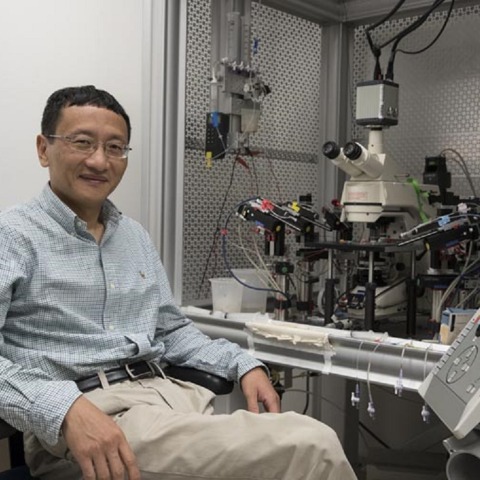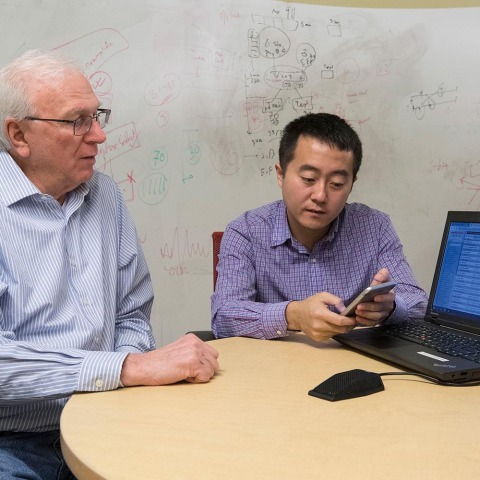Making Medicines Without Side Effects
Our J. Julius Zhu, PhD, and his colleagues have found a way to create drugs without side effects. Basically, they’ve developed a lab technique that will add a whole new layer of precision to the concept of “precision medicine.”
The technique is built on their discovery that the same molecule does different things depending on where it is inside a cell. That’s why drugs can have unintended side effects: Blocking a troublesome molecule entirely might have a beneficial effect, but you’re also stopping its other roles inside the cells. Some of those roles might be quite important.


